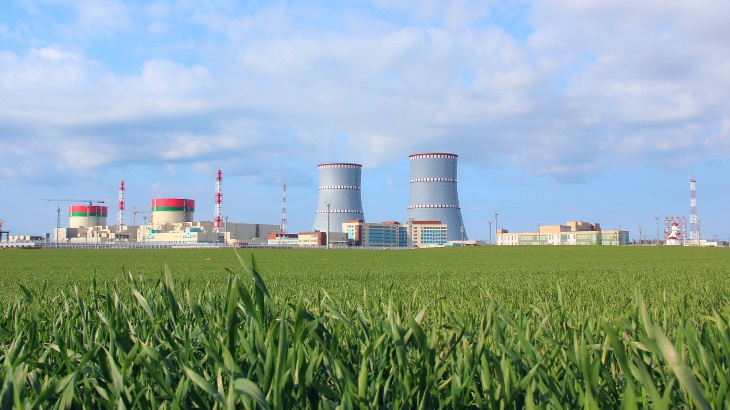Following fuel loading, the reactor will be brought to the minimum controlled power level (1% of the total power capacity) and relevant tests will be performed. From that moment on, the reactor acquires the status of a nuclear power facility, Rosatom said. After the reliability and safety of the power unit according to its design parameters have been verified, the power start-up stage will begin and the reactor will be connected to the grid for the first time.
"The Republic of Belarus has become the owner of a power unit built according to the latest Gen 3+ technologies,” Rosatom Director General Alexey Likhachov said on the occasion of the start of fuel loading. “This technology has been proved and tested through the operation of similar power units in Russia. They meet all the post-Fukushima safety requirements, and all the International Atomic Energy Agency (IAEA) missions have recognised their reliability. It is very important to us that we have built the first VVER-1200 unit abroad in the Republic of Belarus, a good neighbour of ours."
The Belarusian NPP construction project is being implemented in an open and transparent manner, Rosatom said. “The power plant meets all the IAEA safety requirements. Belarus is cooperating with the management and experts of the organisation regularly, and it also interacts with representatives of the European Commission and the European Nuclear Safety Regulators Group (ENSREG). Overall, in 2012-2020, seven key IAEA missions, which are recommended for countries building their first nuclear power plants, were carried out,” it said.
Unit 1 is the first unit of the newest Gen 3+ built using Russian technologies abroad. Currently, three power units of this type are in operation in Russia: two at the Novovoronezh plant and one at the Leningrad plant. Furthermore, in July, construction was completed and start-up operations began at the fourth Russian Gen 3+ power unit - Leningrad unit 6.
"Compared to the power units with the VVER-1000 reactor of the previous generation, the innovative Gen 3+ power unit with the VVER-1200 reactor has a number of advantages that significantly increase its economic performance and safety," said Andrey Petrov, general director of Rosatom's operator subsidiary Rosenergoatom and first vice-president for nuclear power plant construction of its engineering unit, ASE Group.
He added: "The main feature of the VVER-1200 is a unique combination of active and passive safety systems that make the NPP fully resistant to external and internal influences. For example, all power units are equipped with a core catcher, a device provided to catch the molten core material of a nuclear reactor, as well as other passive safety systems capable of operating in complete power outage and without operators. In addition, the capacity of the power unit has increased by 20%, the number of maintenance personnel has been significantly reduced, and the design life of the main equipment has been doubled from 30 to 60 years with the possibility of extending it for another 20 years."
Further VVER-1200 units are either planned or are already under construction in Bangladesh, Egypt, Finland, Hungary and Turkey.
Atomenergomash JSC is a supplier of all the key equipment of the nuclear island for the Belarusian plant. The fuel was produced at the Novosibirsk Chemical Concentrates Plant and its enrichment level varies between 1.3% and 4.4%.















